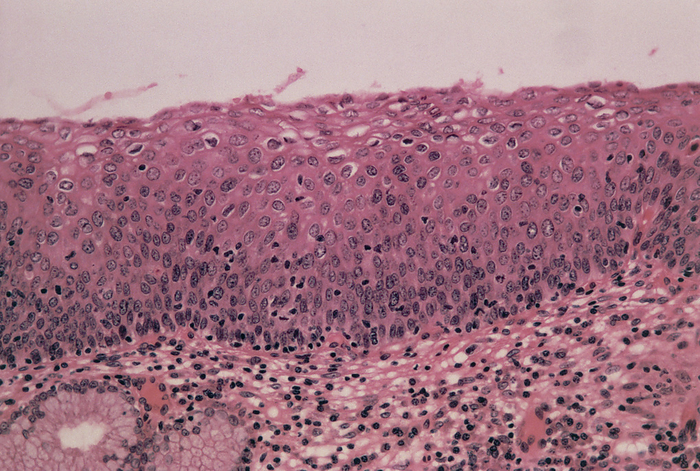
RM
LM of cervical cells showing mild dysplasia (CIN1)
Mild cervical dysplasia. Light micrograph of a section through human cervical epithelium showing mild dysplasia (abnormal growth) classified as CIN-1. CIN (cervical intraepithelial neoplasia) is the term used to describe malignant changes in the squamous epithelium of the cervix. Here, epithelial cells (upper half of section) have become thickened. Their nuclei (dark, round) have become enlarged and prominent. Cell division is not now confined to the basal (bottom) layer. If untreated such mild dysplasia can progress to cervical cancer, the most common type of cancer affecting women. Haematoxylin and eosin stained. Magnification: x200 at 35mm size.

More
Top Categories
